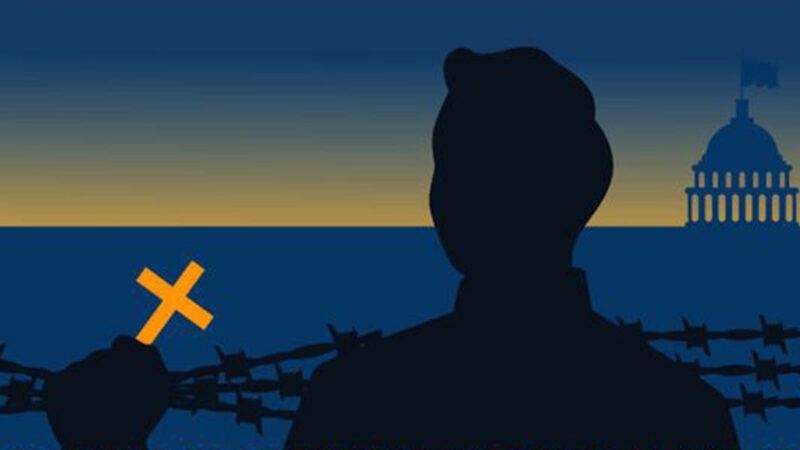Review: A Podcast Exploring the History of Immigrant Sanctuaries
The sanctuary movement challenges state power, argue the hosts of Sanctuary: On the Border Between Church and State.

When you think about Christianity in the 1980s, you likely picture televangelists and the right-wing Moral Majority. But across the country, hundreds of congregations formed a very different movement: sheltering undocumented people in direct defiance of the federal government.
Historians Sergio González and Lloyd Barba, of Marquette University and Amherst College, respectively, explore that movement's history in the podcast Sanctuary: On the Border Between Church and State. "What we find in the sanctuary movement is one of the most dramatic and successful challenges to state power perhaps in the history of the United States," González says in the first episode.
As the U.S. government refused to protect Central American asylum seekers in the 1980s, houses of worship took up the task. The work of sheltering undocumented immigrants, while informed by genuine religious beliefs, violated federal law. Some sanctuary activists paid the price: Operation Sojourner, under which government agents embedded themselves in church meetings, led to the prosecution of nuns, priests, and other volunteers. The movement didn't die; it evolved to meet different challenges over the next several decades.
In an increasingly secular nation, the podcast asks, what is the role of sanctuary? The proliferation of "sanctuary cities" and "sanctuary states"—and the development of nonimmigration applications, such as "Second Amendment sanctuaries"—proves that sanctuary, and the challenge to state power it represents, remains an important practice, especially as the second Trump administration brings a renewed threat to undocumented immigrants.
Editor's Note: As of February 29, 2024, commenting privileges on reason.com posts are limited to Reason Plus subscribers. Past commenters are grandfathered in for a temporary period. Subscribe here to preserve your ability to comment. Your Reason Plus subscription also gives you an ad-free version of reason.com, along with full access to the digital edition and archives of Reason magazine. We request that comments be civil and on-topic. We do not moderate or assume any responsibility for comments, which are owned by the readers who post them. Comments do not represent the views of reason.com or Reason Foundation. We reserve the right to delete any comment and ban commenters for any reason at any time. Comments may only be edited within 5 minutes of posting. Report abuses.
Please to post comments


"When you think about Christianity in the 1980s, you likely picture televangelists and the right-wing Moral Majority. But across the country, hundreds of congregations formed a very different movement: sheltering undocumented people in direct defiance of the federal government."
When I think about churches today, I think about the 1st Amendment.